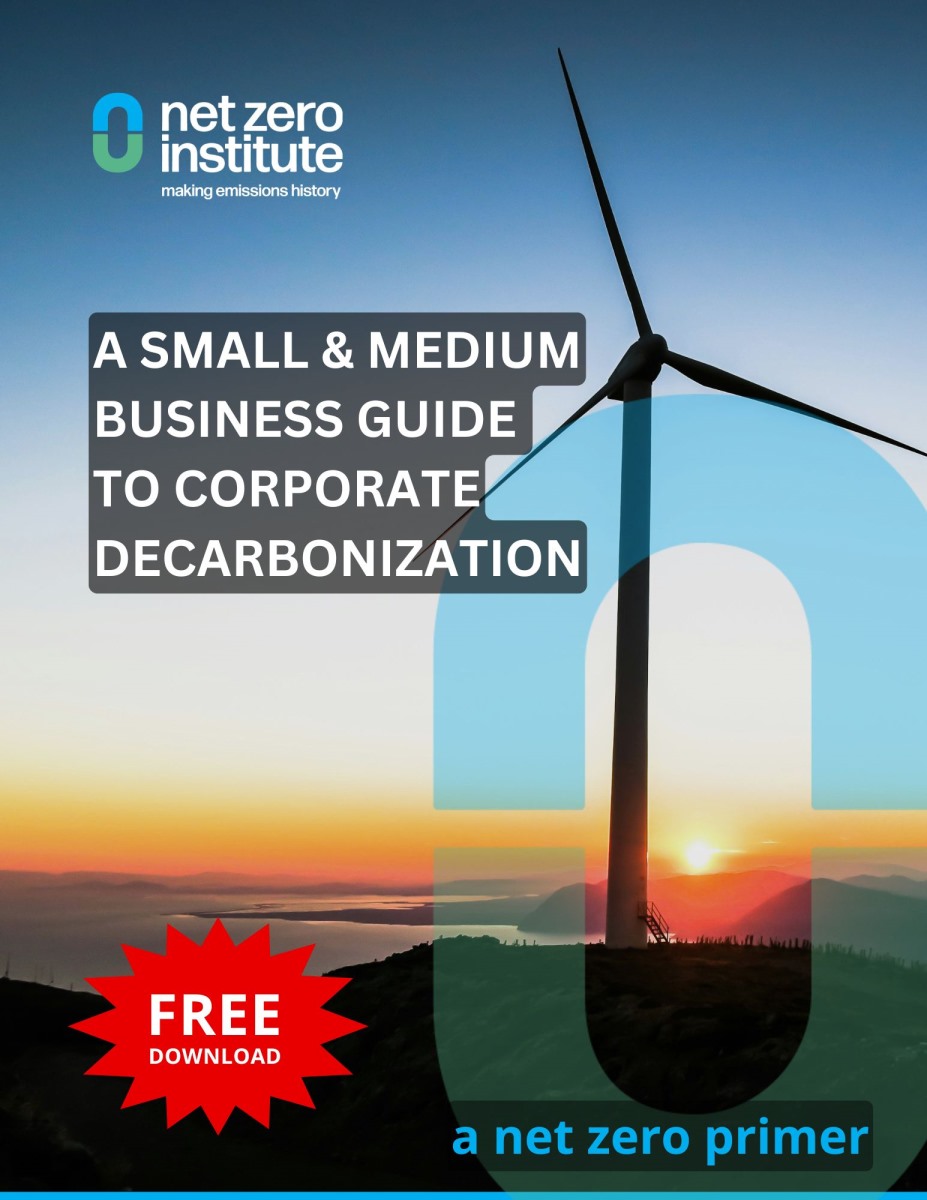It’s Time to Make Your Sustainability Commitment: Driving Change and Creating Value

In today's business landscape, sustainability is no longer optional – it's a crucial factor for long-term success. More than just an ethical obligation, sustainability has become a powerful profitability driver.
A recent McKinsey analysis found that companies excelling in total shareholder returns (TSR), financial performance, and environmental, social, and governance (ESG) metrics—termed "triple outperformers"—achieved median revenue growth of 11% annually, outpacing peers focused solely on financials. This demonstrates that integrating sustainability into core business strategies isn't just good for the planet—it's good for business.
So, how can your company embrace this opportunity and make sustainability commitments that truly drive change?
Make Clear, Public Commitments
Public commitments create accountability and momentum. Take Starbucks, for example. In January 2020, CEO Kevin Johnson announced a multi-decade aspiration to become resource positive, including 50% reductions in carbon emissions, water use, and waste by 2030. By October 2024, they had refined these goals, adding specific targets for packaging and aiming for 10,000 Greener Stores by 2025.
When making public commitments:
- Be specific and quantitative
- Align with recognized frameworks like the UN Sustainable Development Goals or Science Based Targets initiative
- Engage stakeholders in the process
- Be transparent about both progress and challenges
- Regularly review and refine your goals
At PTC, we are doing this by committing to the Science Based Targets initiative (SBTi). SBTi provides standards, tools, and guidance to help companies set greenhouse gas (GHG) emissions reduction targets in line with the latest climate science. By working toward our SBTi goals, we ensure we are doing our part to limit global warming to 1.5°C and prevent the worst effects of climate change.
We continuously monitor our impact, adjust our strategies as needed, and report our achievements and challenges. This approach guarantees that we are not only pledging to change but actively making a difference in reducing our carbon footprint, enhancing our sustainability practices, and contributing to a healthier planet for future generations.
Align Leadership and Change Mindsets
Leadership support is crucial, but it's not enough on its own. You need to change mindsets throughout the organization. This means helping employees understand how sustainability drives business value.
Interface, a global flooring company, provides a great example. They achieved their "Mission Zero" goal to eliminate any negative impact on the environment by 2020, and have since committed to becoming a carbon negative enterprise by 2040. This long-term commitment has driven innovation and business success throughout the organization.
At PTC, our employees play a big part in reducing our corporate footprint through our Green at PTC employee champion network. This grassroots volunteer group hosts events and advocates for sustainability improvements, from minimizing waste across PTC’s facilities to helping provide more sustainable commuting options for employees.
By empowering our employees to take an active role, we ensure that our commitment to environmental responsibility is embedded in every aspect of our operations, driving real change up and down the organization.
Hardwire Change Through Processes and Measurement
To make sustainability stick, it needs to be embedded in your core business processes and performance measures. For smaller and medium-sized businesses, a strong first step is to start disclosing carbon footprints and making clear sustainability commitments. Consider sharing this information on your company website, in your annual reports, or through platforms like Carbon Disclosure Project (CDP) or Global Reporting Initiative (GRI).
You can also align with industry-specific sustainability standards or certifications to increase credibility. These steps not only demonstrate accountability but also help secure business with larger B2B customers who increasingly prioritize sustainability in their supply chains. By taking this step, companies ensure sustainability is not just an ambition but a meaningful part of their operations, creating both trust and opportunity.
Making meaningful sustainability commitments isn't easy, but the potential benefits are significant. A 2021 study by NYU Stern Center for Sustainable Business found that sustainability-marketed products grew 7.1 times faster than products not marketed as sustainable, demonstrating the growing consumer demand for sustainable products and services.
By following these strategies and learning from leading companies, you can position your organization at the forefront of the sustainability transformation and drive real, lasting change. Remember, sustainability is not just about compliance or corporate social responsibility – it's a fundamental driver of business value and competitiveness in the 21st century.
 Dave Duncan, Head of Sustainability at PTC, is an advisor to the Net Zero Institute. This blog touches on key aspects of declaring a commitment, which we explore in greater detail through our exclusive member resources. From Insight Briefs that break down complex issues to on-demand workshops and other resources, we provide the tools and guidance to help you navigate every step of your journey. To access these resources and join a network of leaders committed to a net-zero future, we invite you to become a member today.
Dave Duncan, Head of Sustainability at PTC, is an advisor to the Net Zero Institute. This blog touches on key aspects of declaring a commitment, which we explore in greater detail through our exclusive member resources. From Insight Briefs that break down complex issues to on-demand workshops and other resources, we provide the tools and guidance to help you navigate every step of your journey. To access these resources and join a network of leaders committed to a net-zero future, we invite you to become a member today.
